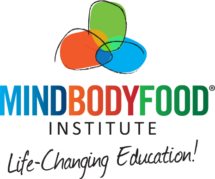The liver is a remarkable organ, responsible for over 500 functions in the body, including its roles in digestive health, immune support, blood clotting, and more. One of the liver’s most important jobs is detoxification. The liver is responsible for converting fat-soluble toxins into water-soluble waste products that are removed from the body via the urinary system, digestive system, skin, and lungs. Unfortunately, the liver can become overburdened throughout a person’s life due to excessive toxins exposure and unhealthy lifestyle practices.
An estimated 1 in 4 adults have a condition called Non-Alcoholic Fatty Liver Disease (NAFLD).
Many individuals with this condition don’t even know they have it until it is found incidentally during an abdominal ultrasound. NAFLD is a condition where excess fat builds up in the liver. This can lead to an impairment in liver function, including impaired detoxification.
It’s essential to know that NAFLD does not form overnight. Instead, the accumulation of excess fat in the liver often takes years to occur. Some health experts call the subclinical stage leading up to NAFLD a “sluggish liver” or “burdened liver.” NAFLD and “sluggish liver” often cause no obvious symptoms, such as abdominal pain.
Signs your liver needs support
1. Hormonal imbalances
Along with detoxifying toxins, the liver is responsible for breaking down old or excess hormones. If the liver is sluggish, these excess hormones will not be broken down properly and can be reabsorbed into the body’s general circulation and lead to hormonal imbalances.
2. Skin issues
The skin is also one of the body’s most important detox organs. We release toxins through the pores of our skin. When the liver is sluggish, excessive toxins can be left circulating in the bloodstream and lymphatic system. With nowhere else to go, these toxins can cause irritation and inflammation of the skin as they try to make their way out of the body through the skin.
There is often a liver-skin connection in inflammatory skin conditions. It’s been studied that individuals with NAFLD have a higher occurrence of inflammatory skin conditions.
3. Stubborn excess weight
Many people claim that it becomes harder to lose weight the older they get. This stubborn weight is often blamed on age or menopause when it should really be blamed on a sluggish liver. The older one is, the more years they’ve had to accumulate toxins and fat in their liver. When the liver becomes sluggish or fatty, the body becomes less efficient at processing the food we eat into energy. In order words, a fatty liver can significantly impair metabolic function and allow fat to build up in other parts of the body.
4. Sleep issues
The liver runs on a circadian clock and does the bulk of its deep detoxing work in the nighttime while we sleep. Many individuals with a sluggish liver report waking up in the middle of the night (especially between the hours of 1 am and 3 am) and having difficulty falling back asleep. This can be due to the detox pathways turning on in the liver and creating enough disruption to wake you up. Similarly, if the liver cannot keep up with the detoxification of cortisol (the stress hormone), the excess circulating cortisol could keep you in a wakeful state.
5. Digestive issues
The liver plays a crucial role in fat digestion. The liver produces and secretes bile whenever we eat food containing fat. If the liver is sluggish, it can fall behind in bile production, leading to fat malabsorption and downstream digestive effects, including gas, bloating, changes in bowel movements, etc.
Factors that contribute to the development of sluggish liver and NAFLD
- Excessive toxin exposure – through environmental toxins like heavy metals and plastics, poor drinking water, processed foods, herbicides and pesticides in the food chain, chemicals in household products and cosmetics, etc.
- Nutrient deficiency – the liver requires numerous vitamins and minerals to power detox pathways. A diet lacking in nutrient density can be a primary contributor to slowing down liver function.
- Excessive dietary fat consumption – eating fatty and greasy foods, especially in the context of a Standard American Diet, can lead to storing excess fat in the liver. More fat consumption also requires the liver to do more work by producing extra bile for fat digestion.
- Dehydration – a dehydrated liver cannot function properly. And a dehydrated body cannot detoxify properly, leading to the build-up of waste in the liver.
- Alcohol consumption – even moderate alcohol consumption that wouldn’t be enough to cause alcohol fatty liver disease can contribute to non-alcoholic liver disease.
- Drugs – most recreational drugs are very toxic to the liver. Several pharmaceutical medications also require substantial energy from the liver to be metabolised and detoxified.
Tips to support liver health
Just as lifestyle choices can contribute to a state of liver sluggishness, different lifestyle choices can reverse it. The following tips are helpful steps to supporting liver health:
- Avoiding toxins exposure – Drink filtered water, choose non-toxic cleaning products and cosmetics, eat non-processed foods, choose organic or minimally sprayed foods whenever possible, and avoid products with plastics or metals than can accumulate in the body.
- Eat a nutrient-rich diet – Aim to eat foods in their whole form, avoiding processed foods as much as possible. It has been studies that individuals who eat a diet rich in plant-based foods have a lower likelihood of developing fatty liver. Choose brightly colored fruits and vegetables that are not only rich in vitamins and minerals but also fiber and water.
- Avoid excessively fatty foods – Reducing fat in the diet has been studied to reverse fatty liver. Fried foods and foods/meals that combine many oils or butter with a lot of processed sugar can be the most damaging.
- Keep hydrated with mineral-rich water and fluids – Choosing fluids that are naturally rich in minerals allows the hydration to be absorbed into the cells of the liver, aiding in optimal function.
- Limit the use of alcohol – replace it with a delicious and healthy “mock-tail” such as bubbly water with a splash of fruit juice.
- Avoid recreational drug use – these compounds are direct liver toxins and have many other detrimental health effects.
Herbs, supplements, and liver cleanses can also be utilized to support the liver in healing. However, it’s always recommended to consult with an expert before starting any supplement, herbal, or cleansing protocols to ensure they are the right fit for you.
In summary
- The liver is one of our most important organs, serving over 500 roles in the body, including detoxification.
- Sluggish liver and Non-Alcoholic Fatty Liver Disease are widespread conditions in our population today.
- While these conditions don’t generally cause obvious liver symptoms like abdominal pain, other less obvious signs can suggest liver issues. These include hormonal imbalances, skin issues, stubborn excess weight, sleep issues, and digestive issues.
- The best way to undo the stress that has been put on the liver to cause sluggish liver or NAFLD is to make healthy lifestyle choices. Some examples include eating a nutrient-rich diet, avoiding greasy and high-fat foods in combination with sugary foods, limiting exposure to environmental toxins, etc.
- Sluggish liver and NAFLD are entirely reversible with healthy lifestyle choices and possibly additional support from a trained professional.
References:
- Mitra S, De A, Chowdhury A. Epidemiology of non-alcoholic and alcoholic fatty liver diseases. Translational Gastroenterology and Hepatology. 2020;5:16-16. doi:10.21037/tgh.2019.09.08
- Adlercreutz H, Höckerstedt K, Bannwart C, et al. Effect of dietary components, including Lignans and phytoestrogens, on enterohepatic circulation and liver metabolism of estrogens and on sex hormone binding globulin (SHBG). Journal of Steroid Biochemistry. 1987;27(4-6):1135-1144. doi:10.1016/0022-4731(87)90200-7
- Kulkarni NM, Jaji MS, Shetty P, et al. A novel animal model of metabolic syndrome with non-alcoholic fatty liver disease and skin inflammation. Pharmaceutical Biology. 2014;53(8):1110-1117. doi:10.3109/13880209.2014.960944
- Watt MJ, Miotto PM, De Nardo W, Montgomery MK. The liver as an endocrine organ—linking NAFLD and insulin resistance. Endocrine Reviews. 2019;40(5):1367-1393. doi:10.1210/er.2019-00034
- Parry SA, Hodson L. Influence of dietary macronutrients on liver fat accumulation and metabolism. Journal of Investigative Medicine. 2017;65(8):1102-1115. doi:10.1136/jim-2017-000524
- Chiu CC, Ching YH, Li YP, et al. Nonalcoholic Fatty Liver Disease Is Exacerbated in High-Fat Diet-Fed Gnotobiotic Mice by Colonization with the Gut Microbiota from Patients with Nonalcoholic Steatohepatitis. Nutrients. 2017;9(11):1220. Published 2017 Nov 6. doi:10.3390/nu9111220
- Hüssinger D, Newsome W, vom Dahl S, et al. Control of liver cell function by the hydration state. Biochem Soc Trans. 1994;22(2):497-502. doi:10.1042/bst0220497
- Mazidi M, Kengne AP. Higher adherence to plant-based diets are associated with lower likelihood of fatty liver. Clin Nutr. 2019;38(4):1672-1677. doi:10.1016/j.clnu.2018.08.010
- Kabisch S, Bäther S, Dambeck U, et al. Liver Fat Scores Moderately Reflect Interventional Changes in Liver Fat Content by a Low-Fat Diet but Not by a Low-Carb Diet. Nutrients. 2018;10(2):157. Published 2018 Jan 31. doi:10.3390/nu10020157
- Häussinger D, Schliess F, Warskulat U, vom Dahl S. Liver cell hydration. Cell Biol Toxicol. 1997;13(4-5):275-287. doi:10.1023/a:1007483324138
Featured image by Sasun Bughdaryan on Unsplash.
Author:
Susanna Alter
Dr. Susanna Alter ND is a Licensed Naturopathic Doctor. Through her own healing experience, Susanna had the clear insight that her purpose in this life was to support others in navigating through their own healing journeys. Dr. Susanna is able to see how her love for nature, spirituality, and health have beautifully come together to inform her style of practicing medicine that uses nature and mindfulness to support the innate healing ability of each individual on the level of the mind, body, and spirit. She continues to pursue her passions outside of Alter Health with yoga, hiking, cycling, swimming, creative cooking, gardening and traveling. Find further information about Dr. Susanna and her work at Alter Health.
DOWNLOAD OUR COURSES GUIDE
Learn More About Our Course Offerings and Discover Which New Wellbeing Career Best Suits Your Passion!








